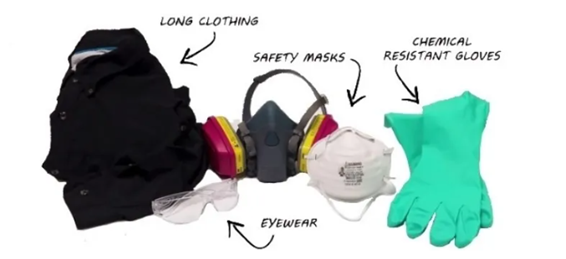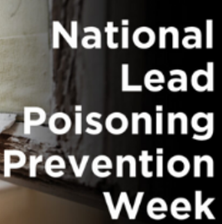It’s National Lead Poisoning Awareness Week
The U.S. Environmental Protection Agency (EPA) and the Centers for Disease Control and Prevention (CDC) recognize the third week of October as National Lead Poisoning Awareness Week to educate the public about the dangers and potential health impacts of lead at home and in the workplace.
What Is Lead?
Lead is a naturally occurring element found in small amounts in the earth’s crust. It may have some beneficial uses, but it can also be toxic to humans and animals, often causing health effects. There are no safe levels of lead.
Where Do We Find Lead in Our Daily Lives?
Lead-based paint was banned for residential use in New York City in 1960 and nationally in 1978. However, the past use of lead-based paint in homes built before then can present major health issues, especially for children under 6 years of age, and lead and lead compounds have also been used in a wide variety of other products found where we live and work:
Who Is at Risk for Lead Exposure?
- Children under the age of 6 years
- Pregnant women
- Adults who work in lead-related occupations
- People drinking water that comes through lead pipes
- People using cups, pitchers, or plates made with a lead-based glaze
NYCHA workers may be exposed to lead-based paint during the disturbance (removal, renovation, demolition, repair, or maintenance) of structures, fixtures, and materials containing lead-based paint. NYCHA job titles involved with this work include:
- Asbestos Handler
- Bricklayer
- Carpenter
- Caretaker P
- Electrician
- Lead Abatement Worker
- Maintenance Worker
- Mason’s Helper
- Painter & Apprentice
- Plumber & Helper
Per OSHA standard 1926.62, NYCHA is required to make available the results of lead personnel exposure assessments, which must indicate where the work was performed, the tasks that were being done, and the results of the airborne lead exposure assessments. These results are available to NYCHA staff on NYCHA Connect (under the SafeNYCHA department page, click “Exposure Assessment Reports”). If you have any questions about the assessments, please email SafeNYCHA@nycha.nyc.gov.
How Do I Limit Lead Exposure in the Workplace?
- Learn about lead exposure and lead hazards
- Read and follow your employer’s lead control and management plan
- Practice good hygiene (e.g., wash your hands frequently)
- Work in well-ventilated areas
- Use required personal protective equipment (PPE)
- If worried about possible exposure, have your blood lead level checked

For additional guidance, please refer to NYCHA Standard Procedure 050:20:1 – Lead Safe Housing Procedure.
If you have questions about this or any environmental health and safety matter, please email ehs@nycha.nyc.gov. Residents, employees, and any member of the public can submit environmental health and safety concerns at https://on.nyc.gov/submit-concern.
For more information about lead, please visit:







